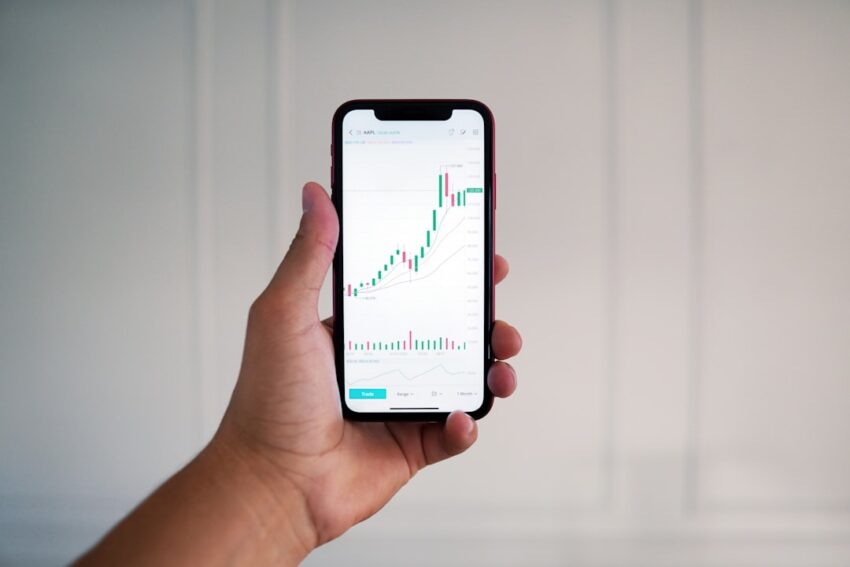Meeting Margin Requirements
Having sufficient capital allows day traders to meet margin requirements set by brokerage firms and regulatory bodies. Margin requirements dictate the minimum amount of capital that a trader must have in their account in order to trade on margin. Trading on margin allows traders to leverage their positions, meaning they can control larger positions with a smaller amount of capital. This can amplify both gains and losses, so having enough capital to meet margin requirements is crucial for day trading success.
Make $800 a day in less than 30 minutes with the “Secret Protocol”
Covering Trading Costs
Furthermore, having enough capital allows day traders to cover the costs associated with trading, such as commissions and fees. Commissions are fees that are charged by brokerage firms for executing trades on behalf of their clients. These fees can add up quickly, especially for day traders who execute a large number of trades each day. Therefore, having enough capital to cover these costs is essential for day trading success.
Absorbing Potential Losses
Finally, having sufficient capital allows day traders to withstand potential losses. Trading inherently involves risk, and it is possible for traders to experience losses on their trades.
Having enough capital in their accounts allows day traders to absorb these losses without having to liquidate their positions or face margin calls. This is crucial for day trading success, as it allows traders to stay in the game and continue trading even during periods of market volatility.
Meeting the Minimum Account Balance for Day Traders
Day traders are required to maintain a minimum account balance in order to meet the regulatory requirements set by brokerage firms and regulatory bodies.
This minimum account balance is set to ensure that day traders have enough capital in their accounts to meet margin requirements and cover potential losses. Meeting the minimum account balance is crucial for day traders, as it allows them to continue trading on margin and withstand market volatility.
The minimum account balance for day traders varies depending on the brokerage firm and regulatory body. Brokerage firms may have their own minimum account balance requirements that day traders must meet in order to trade on margin.
Additionally, regulatory bodies such as the Securities and Exchange Commission (SEC) and the Financial Industry Regulatory Authority (FINRA) may also have minimum account balance requirements for day traders.
These requirements are put in place to protect both the trader and the brokerage firm from excessive risk. Meeting the minimum account balance is important for day traders because it allows them to continue trading on margin. Trading on margin allows traders to leverage their positions, meaning they can control larger positions with a smaller amount of capital.
This can amplify both gains and losses, so having enough capital in the account to meet margin requirements is crucial for day trading success. Additionally, meeting the minimum account balance allows day traders to withstand potential losses without having to liquidate their positions or face margin calls.
Leveraging Funds for Day Trading Opportunities

Day traders often leverage their funds in order to take advantage of trading opportunities in the market. Leveraging funds allows traders to control larger positions with a smaller amount of capital, which can amplify both gains and losses. While leveraging funds can potentially lead to higher profits, it also comes with its own set of risks that day traders need to be aware of.
Leveraging funds allows day traders to control larger positions than they would be able to with their own capital alone. This can potentially lead to higher profits, as traders can take advantage of small price movements in the market to generate larger returns. However, leveraging funds also comes with its own set of risks.
Make $800 a day in less than 30 minutes with the “Secret Protocol”
Since traders are controlling larger positions with a smaller amount of capital, this can amplify both gains and losses. Therefore, day traders need to be cautious when leveraging their funds and ensure that they have enough capital in their accounts to cover potential losses. In addition to amplifying gains and losses, leveraging funds also comes with the risk of margin calls.
Margin calls occur when a trader’s account falls below the minimum margin requirement set by the brokerage firm or regulatory body.
When this happens, the trader may be required to deposit additional funds into their account or liquidate their positions in order to meet the margin requirement. Therefore, day traders need to be mindful of the risks associated with leveraging funds and ensure that they have enough capital in their accounts to withstand potential margin calls.
The Risks of Day Trading with Insufficient Capital
Day trading with insufficient capital can lead to a number of risks that traders need to be aware of. Without enough capital in their accounts, day traders may not be able to meet margin requirements, cover trading costs, or withstand potential losses. This can lead to margin calls, forced liquidation of positions, and ultimately, financial ruin for the trader.
One of the main risks of day trading with insufficient capital is the inability to meet margin requirements. Margin requirements dictate the minimum amount of capital that a trader must have in their account in order to trade on margin. Trading on margin allows traders to leverage their positions, meaning they can control larger positions with a smaller amount of capital.
Make $800 a day in less than 30 minutes with the “Secret Protocol”
However, if a trader does not have enough capital in their account to meet margin requirements, they may be subject to margin calls or forced liquidation of positions by the brokerage firm. Additionally, day trading with insufficient capital can lead to financial ruin for the trader. Without enough capital in their accounts, day traders may not be able to cover trading costs such as commissions and fees or withstand potential losses.
This can lead to forced liquidation of positions by the brokerage firm or even bankruptcy for the trader.
Building a Solid Foundation for Day Trading Success
Establishing a Financial Safety Net
To achieve success in day trading, traders need to establish a solid financial foundation, which includes having sufficient capital in their accounts. This foundation enables traders to meet margin requirements, cover trading costs, and withstand potential losses without facing financial difficulties. A solid foundation for day trading success requires careful planning, effective risk management, and a thorough understanding of the financial requirements and risks associated with day trading.
Effective Risk Management Strategies
One key aspect of building a solid foundation for day trading success is managing risk effectively. This involves setting realistic goals, using stop-loss orders to limit potential losses, and diversifying the portfolio to spread risk across different assets. By managing risk effectively, day traders can protect their capital and ensure they have enough funds in their accounts to continue trading even during periods of market volatility.
Maintaining Adequate Capital Reserves
Another crucial aspect of building a solid foundation for day trading success is ensuring there is enough capital in the trading account to meet margin requirements and cover potential losses.
This may involve setting aside a portion of funds specifically for trading activities and avoiding over-leveraging positions. By maintaining adequate capital reserves, day traders can continue trading on margin and withstand potential losses without facing financial difficulties.
The Impact of Capital Requirements on Day Trader Strategies

Capital requirements have a significant impact on day trader strategies. The amount of capital in a trader’s account dictates the size of positions they can take, the number of trades they can execute, and ultimately, the level of risk they can take on. Therefore, it is important for day traders to consider capital requirements when developing their trading strategies in order to ensure long-term success.
The amount of capital in a trader’s account dictates the size of positions they can take in the market. With more capital, traders can take larger positions and potentially generate higher returns. However, larger positions also come with higher levels of risk, so it is important for day traders to carefully consider position sizing when developing their strategies.
Additionally, the amount of capital in a trader’s account also dictates the number of trades they can execute. With more capital, traders can execute more trades and potentially take advantage of more opportunities in the market.
However, executing more trades also comes with higher costs in terms of commissions and fees, so it is important for day traders to strike a balance between taking advantage of opportunities and managing costs effectively.
Finally, the amount of capital in a trader’s account dictates the level of risk they can take on in their strategies. With more capital, traders may be able to take on higher levels of risk and potentially generate higher returns. However, taking on higher levels of risk also comes with the potential for larger losses, so it is important for day traders to carefully consider risk management when developing their strategies.
In conclusion, understanding the financial requirements and importance of capital in day trading is crucial for success in this field. Meeting minimum account balances and leveraging funds are important aspects that require careful consideration by day traders. Insufficient capital can lead to significant risks that could impact a trader’s success negatively; therefore building a solid foundation is essential for long-term success.
Finally, understanding how capital requirements impact day trader strategies is crucial for developing effective trading plans that align with individual risk tolerance levels and financial goals.
If you’re interested in learning more about the stock market and how it works, you should check out this informative article on What is the Stock Market and How Does it Work. Understanding the basics of the stock market is crucial for anyone looking to become a successful day trader, and this article provides a comprehensive overview of how the stock market operates.


